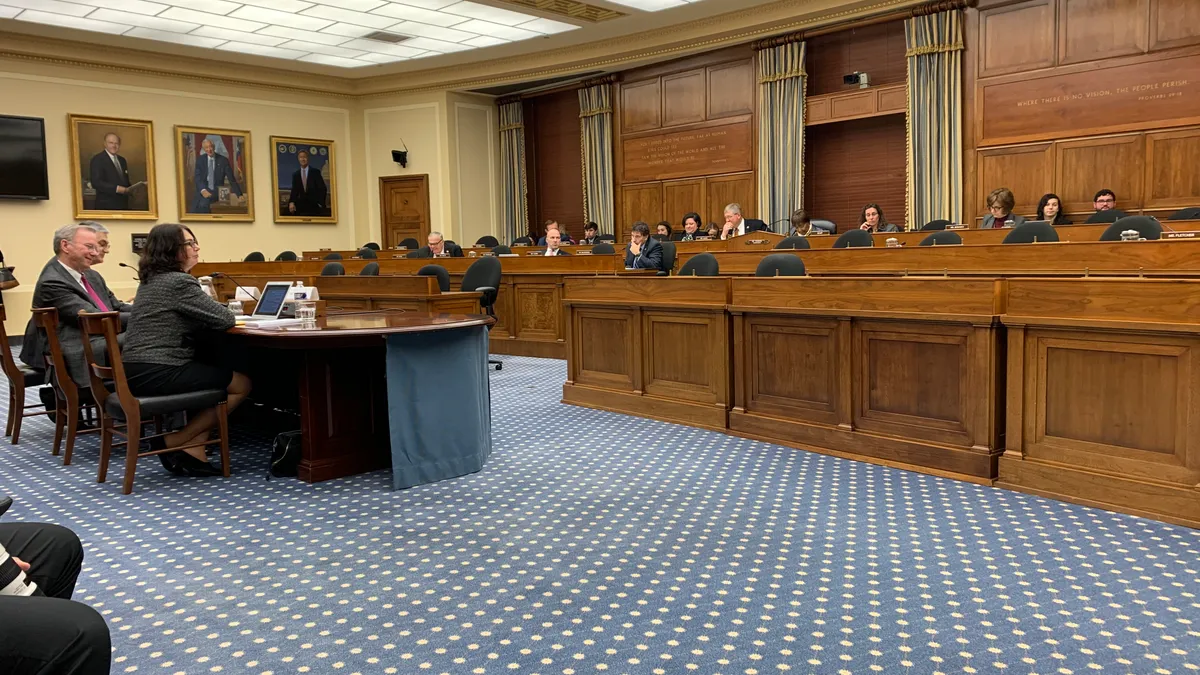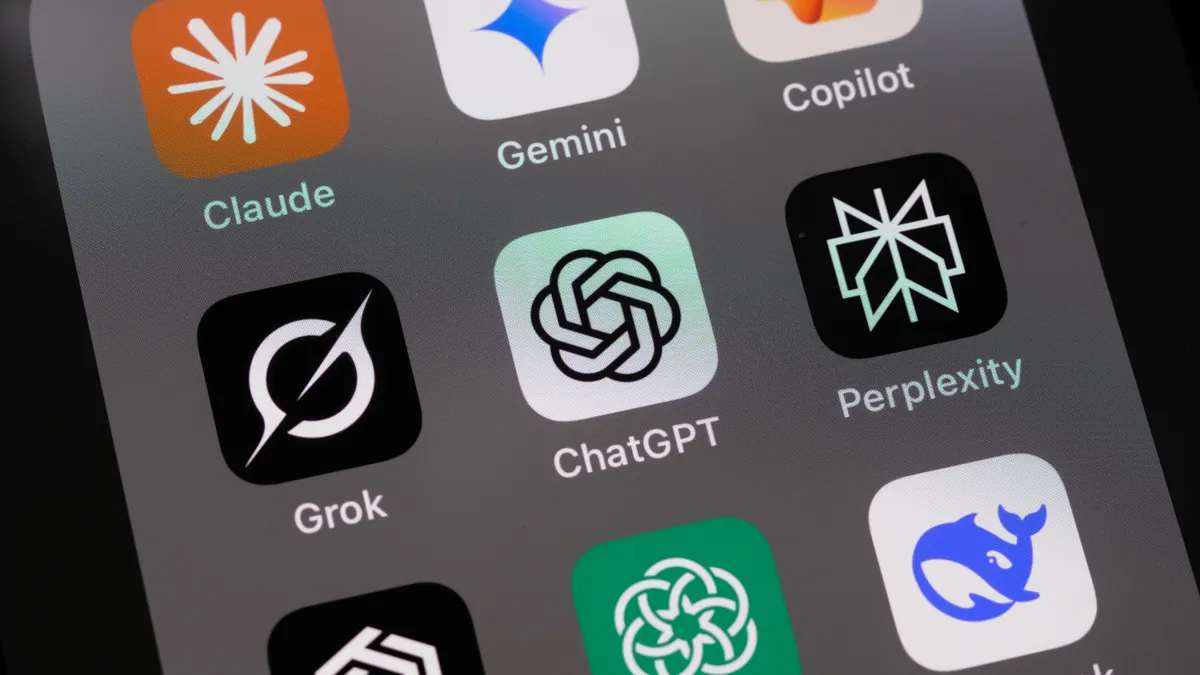WASHINGTON — Citizens all around the world hold Apple iPhones in their hands, type on computers powered by Intel chips, and store memories in the Amazon Web Services cloud.
Those are just some of the American-grown Silicon Valley innovations to change the world and make the U.S. an uncontested competitor in technology. But experts say China is threatening the title.
The U.S. losing ground in technology and science threatens industry competition, the economy and national defense, said House committee members and experts.
"My message today is one of urgency," said Eric Schmidt, during a hearing before the U.S. House of Representatives Committee on Science, Space and Technology in Washington Wednesday.
The U.S. is steadily spending less of its gross domestic product on research and development while China is increasing it, according to Investopedia. Within the next decade, China is expected to outspend the U.S. in R&D, reports MIT Technology Review.
China has ambitious plans to outpace the U.S. across the technology spectrum, including quantum, 5G, energy vehicles and artificial intelligence, "which is everything I do and everything everyone here cares about."

Eric Schmidt
founder of Schmidt Futures and former Google CEO and executive chairman and Alphabet executive chairman
"Ten years ago, people were of the opinion China wouldn't get to this point," said Schmidt. It was a reflection of a type of "American arrogance." But China's relentless pursuit of technological domination is a result of access to more "expensive capital" from its government. "Their wealth creation is historic."
But more than the competition with China, U.S. investments in basic research — projects that may not be of service now but will be in the future — has fallen by 12%, according to Ranking Member Rep. Frank Lucas, R-Oklahoma.
Schmidt's early work was funded by the National Science Foundation. "The work I was doing was basic but had applications later," he said. But those ideas, that lack implementation today, aren't receiving the funding or facilities to grow.
What's next from China
China has ambitious plans to outpace the U.S. across the technology spectrum, including quantum, 5G, energy vehicles and artificial intelligence, "which is everything I do and everything everyone here cares about," said Schmidt. The U.S. currently has a slight lead over China in AI, but it's "fragile."
The gap between the two countries is closing. "While science is the endless frontier, we're not the only explorers," said Diane Souvaine, chair of the National Science Board, during the hearing. "The best way to lead the future is [to] invent it."
If China achieves quantum computing before the U.S., it stands as an immediate national security risk, said Chaouki Abdallah, EVP of research at Georgia Institute of Technology, during the hearing. All encryption solutions would feel the impact.
But intellectual property superiority isn't the only risk. China's values fundamentally differ from the U.S. which will be reflected in innovations.
If the U.S. cannot lead, it doesn't have a place to help create the standards of the future, said the committee's Chairwoman Rep. Eddie Bernice Johnson, D-Texas.
Schmidt offered the hearing attendees a hypothetical scenario: If China had developed the internet, it would have been built with surveillance architecture. Surveillance would underlay every technology platform on the internet.
China has made more progress in surveillance mobile phones and devices, in part, because of its government's commitment to citizen censorship. "Imagine if that structure became universal," said Schmidt.
The American model is "free" and an "open society" for thought-sharing, said Schmidt, which "should be the idea that wins."
However, the differences are murkier than Schmidt said. After government complaints, Apple walked back plans for fully encrypted backups on devices two years ago, Reuters reported last week. Last year U.S. Attorney General William Barr made a call to end "warrant-proof" encryption that's perceived to impede investigations.
The U.S.'s historical investments made its research landscape the "most attractive in the world," but it also made it a prime target for adversaries, said Abdallah. The conflict with Huawei Technologies is a primary example.
In 2003, Huawei's American competitor Cisco sued, claiming it stole intellectual property. The Chinese company eventually admitted to stealing code. The hangover from the dispute led the U.S. to ban the telecommunications company from 5G initiatives for security concerns in 2019.
There's a disconnect between private sector telecommunications companies and the federal government, Schmidt said. The Department of Defense should share "some of its key frequencies" with these companies to enable more scale.
Where the US can improve
Along with capital, China has a more structured social model dedicated to extreme work, whereas the American model is more "messy," said Schmidt. But the mess includes industry and government partnerships located at all levels that has made innovation possible.
To do technological innovation on U.S. terms, Schmidt has six proposals for reclaiming dominance in technology and science:
-
Double core federal funding for R&D. And then double it again.
-
Revisit infrastructure. "We need an alternative to Huawei."
-
More grants for "building new patterns of thought."
-
More industry, education, and government partnerships.
-
Fill up the talent pipeline. "To be very, very blunt," there are few people in the government that have sufficient skills in AI and algorithms.
-
Have a change in attitude. The U.S. has to address technical standards, bias and workforce impacts.
The U.S. is still standing on the shoulders of bipartisan investment dating back about 70 years, said Souvaine. The same investments have not been sustained, and the U.S. is feeling the impact now. On the university level, more than 80% of basic research is dependent on federal funding, said Abdallah.
A stalled talent pipeline is in part to blame for the loss of momentum. "We have been lamenting our domestic pipeline challenge for decades without progress," according to Johnson.
While other countries have made headway in tech and science investments, R&D funding outside of defense has "staggered," said Johnson. Funds should not just be relegated to STEM, but to the humanities too. "Those who study ethics and philosophy will be needed alongside those who study bytes and microbes."
American eighth grade students grasp of math and science is "mediocre" compared to other nations, according to a study from 2015 to 2017.

Diane Souvaine
chair of the National Science Board
Souvaine wants the U.S. to act as a "magnet" for foreign talent, but turmoil in visa programs has contributed to stalled talent growth.
Because talent is finding work in other countries, the country is becoming reliant on public schools. To fill the gap and it is a large gap, schools will need funding from the federal government. American eighth grade students grasp of math and science is "mediocre" compared to other nations, according to a study from 2015 to 2017, Souvaine cited.
China and the U.S. have different priorities in citizen and privacy rights. Public acceptance of technologies vary greatly between the two nations: 70% of Chinese citizens think AI will make life better whereas 25% of Americans think the same, according to Schmidt. The difference in views has slowed the U.S. from widespread adoption of emerging technologies.
In the interim, Schmidt recommends a partnership of sorts between the U.S., China and other nations. If U.S. surveillance standards are off the table, the mechanics of technology are up for negotiation. AI safety and ensuring systems run as intended, such as bias-free data collection, are concerns for every nation.





















